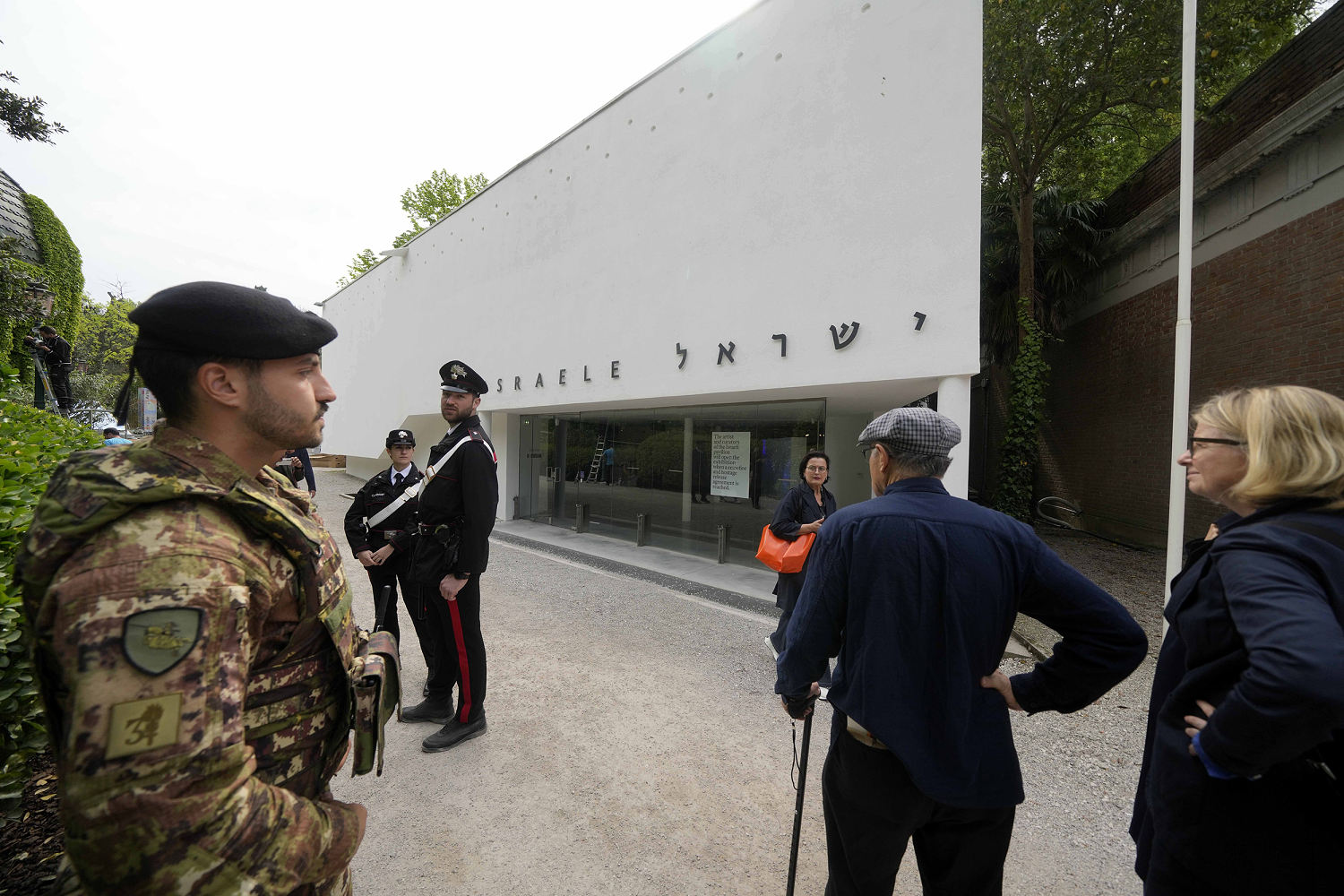Artist refuses to open Israeli pavilion at Venice Biennale until Gaza

“It’s a very courageous decision,” Pedrosa told The Associated Press. “I think it’s a very wise decision as well” because it is “very difficult to present a work in this particular context.”
The national pavilions at Venice are independent of the main show, and each nation decides its own show, which may or may not play into the curator’s vision.
Palestinian artists are participating in collateral events in Venice and three Palestinian artists’ works are to appear in Pedrosa’s main show, titled “Stranieri Ovunque — Foreigners Everywhere,” which has a preponderance of artists from the global south.
Pedrosa, the artistic director of Brazil’s Sao Paulo Museum of Art, said one of the Palestinian artists, New York-based Khaled Jarrar, was not physically in Venice because he couldn’t get a visa.
Geopolitics is no stranger to the Biennale. The festival discouraged, and then banned, South Africa’s participation during apartheid. Russian artists withdrew their participation in 2022 to protest the Kremlin’s invasion of Ukraine, and the Biennale said Russia did not request to participate in this year’s edition.
The war in Gaza erupted after Hamas and Islamic Jihad carried out a cross-border attack on Oct. 7 that killed 1,200 people in Israel and kidnapped 250 others.
Israel’s retaliatory offensive in Gaza has so far killed over 33,700 Palestinians, according to local health officials, causing widespread devastation. The United Nations has warned of imminent famine in northern Gaza.
Read More: Artist refuses to open Israeli pavilion at Venice Biennale until Gaza

